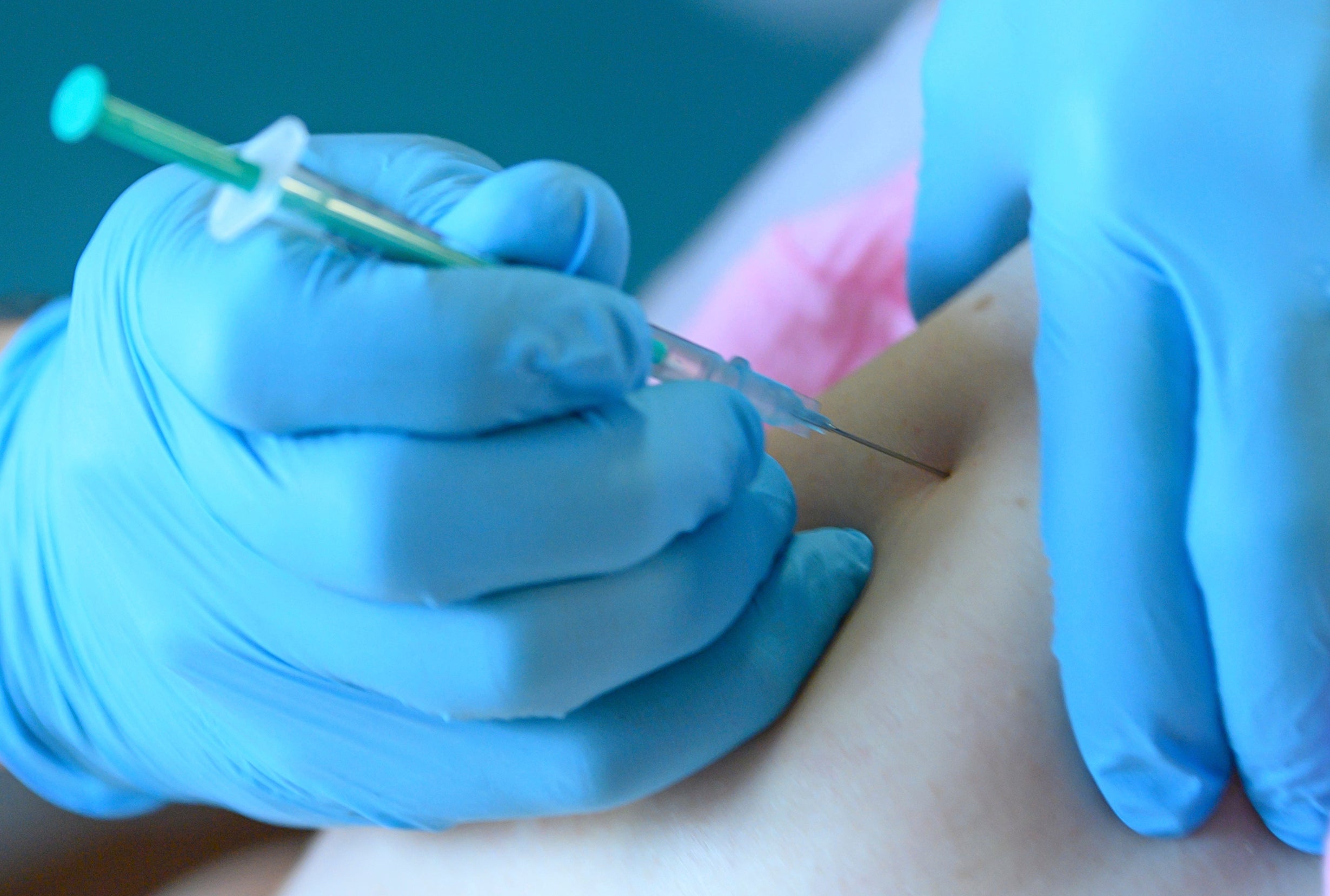‘Kicking Covid’s ass’: Why 2021 will be the year of the vaccine
The rollout is under way but the politics of distribution is only just getting started, reports Borzou Daragahi


If you were asked in December of 2019 to sketch out what would likely happen in 2020, you might have predicted that the US presidential election campaign and the Olympics in Japan would dominate the news and our attention. There were worries about the effects of climate change, the growing misuse of social media, and whether tensions over the increasing polarisation between rich and poor would explode.
But few people could imagine that the mysterious contagion that was just then gathering steam in the Wuhan province of China would mushroom into a global pandemic that would change life as we know it – halting air traffic, shuttering schools and business, and sending the world economy into a tailspin.
Any attempt to grapple with what 2021 might look like should keep in mind that rapid cataclysmic change and unexpected disruptions are becoming increasingly normal – that once-in-a-lifetime political and environmental calamities are now unfolding annually.
Even with that caveat in mind, it is already possible to foresee a 2021 dominated by one thing and one thing alone: it will be the year of the vaccine.
How successfully coronavirus inoculations are mass produced and distributed will determine political legacies and short-term fates, the trajectory of economies, and the rhythm of our daily lives.
“The year 2020 was all about this horrible disease,” Ian Bremmer, an American political scientist and founder of Eurasia Group, a political risk and consulting firm, tells The Independent in an interview. “As 2021 begins, we actually have a way to kick the ass of this thing.”
There will be other major events in 2021. It will be the year in which Angela Merkel will retire after 16 years from the German chancellorship and serving as the steady hand guiding western democracies in the face of an onslaught by the far right.
On 20 January, President-elect Joseph Biden will move into the White House and take over the US government after the tumultuous rule of Donald Trump, who will likely continue to be a presence via Twitter and his favourite right-wing television channels.
Important general elections are set to take place in Chile, Peru, the Netherlands, Japan, and Israel, with worries about surging right-wing populism continuing to fester, despite the defeat of Trump.
Uncertainty continues to cloud US-Iran relations, with President-elect Biden seeking to re-enter the nuclear deal sabotaged by Trump before elections in the Islamic Republic potentially empower hardliners in June.
Wars in Ethiopia, Libya, Syria and Yemen will continue to smoulder and burn. Tensions between Turkey and its neighbours in the eastern Mediterranean could easily spin out of control. Fraying relations between Australia and China are being closely watched by geopolitical experts as a barometer for increasing resentment toward the rise of Beijing as a global power.
Trouble will continue to brew on the Korean peninsula, with questions about whether North Korean leader Kim Jong-un will try to test the patience of the new administration in the White House, and how the US would respond.
On the lighter side, the Eurovision Song Contest is set to take place in Rotterdam, after it was cancelled last year for the first time in its 64-year history because of the pandemic.
Unless something changes dramatically, billions of people around the world will not receive a safe and effective vaccine for Covid-19 for years to come
And the Olympics, which were postponed because of the coronavirus pandemic, are scheduled for the summer in Tokyo, if the pandemic comes under control.
But like perhaps no time in recent history, a complex, high-stakes interplay between science and politics, public policy and economics will unfold around efforts to combat coronavirus and shape 2021.
The drama surrounding the rollout of various coronavirus vaccines, a process which has already begun in the European Union, the United Kingdom and Russia, will be the dominant narrative, and will dominate the first half of the year, perhaps stretching into the summer and autumn.
“Cases and deaths will continue,” said Michael Ryan, executive director of the World Health Organisation's emergencies programme, responding to a question by The Independent during a recent press briefing. “The future is not a foregone conclusion. Vaccines do not equal zero Covid. We have to add vaccines into an existing public health strategy.”
There are more than 150 initiatives to develop vaccines, with eight leading the way. There is evidence the vaccination does not last a lifetime, meaning people may have to be inoculated repeatedly. The elderly and those with pre-existing conditions will be the first to be vaccinated, reducing pressure on healthcare systems.
World health officials say not a single country will have enough vaccine supply at the beginning to immunise everybody who needs it, and difficult conversations will need to be had in the media and public arena about who should get vaccinated first and why.
“The next six months are going to be difficult, but hopeful,” said Maria Van Kerkhove, a leading epidemiologist at WHO. “We need to have patience. We need to put in the work.”
Rolling out vaccines on this scale will be a daunting task for all countries. Unexpected surprises and roadblocks will emerge. A vaccine may have unanticipated medical side effects. Groups of people may rebel. Rumours will spread. Anti-vaxxer propaganda may emerge on social media, discouraging people from immunising themselves.
Many eyes will be focused on the US, where the stakes will be particularly high as the newly sworn-in Biden attempts to build political capital and goodwill in a badly polarised nation by overseeing the distribution of vaccines.
“If Biden doesn’t get the vaccine right in his first 100 days, he’s going to be in trouble,” says Bremmer. “If he does, it’s going to help define his presidency.”
The introduction of the highly effective vaccines has buoyed optimism, and raised hopes across the world. An estimated 4 to 5 billion doses are expected to be available worldwide by the end of next year, says UBS, the Swiss investment bank which has called 2021 “a year of renewal,” at least as far as the world economy goes.
“We will start to head back to pre-pandemic norms while shifting forward into the post-pandemic future,” Solita Marcelli, UBS chief investment officer for the Americas, said in a recent podcast.
“In the midst of increasing restrictions in Europe and accelerating Covid cases in the United States, what still keeps us optimistic about 2021 is our expectation for a widely available vaccine by the end of the second quarter, which should push us toward economic normalisation,” she said.
But critics are warning that there is a danger that the rollout of vaccines, rather than returning the world to some sense of normalcy, could exacerbate divides between rich and poor, and further spur further unrest. Oxfam is warning that rich countries have already begun hoarding vaccines at the expense of poorer countries.
According to Oxfam, 67 nations will only be able to vaccinate 10 per cent of their people, while wealthy countries have pre-ordered enough doses to vaccinate people three times over. Nations representing 14 per cent of the world’s population have bought up more than half the best vaccines.
“Unless something changes dramatically, billions of people around the world will not receive a safe and effective vaccine for Covid-19 for years to come,” Anna Marriott of Oxfam said in a press release. “No one should be blocked from getting a life-saving vaccine because of the country they live in or the amount of money in their pocket.”
The imbalance underscores what could be another big development in 2021: the increasing anger over the divide between rich and poor that is emerging as a theme of our age, and could undermine any efforts to bring the world out of the economic malaise and social and political disruption caused by the pandemic.




Join our commenting forum
Join thought-provoking conversations, follow other Independent readers and see their replies
Comments